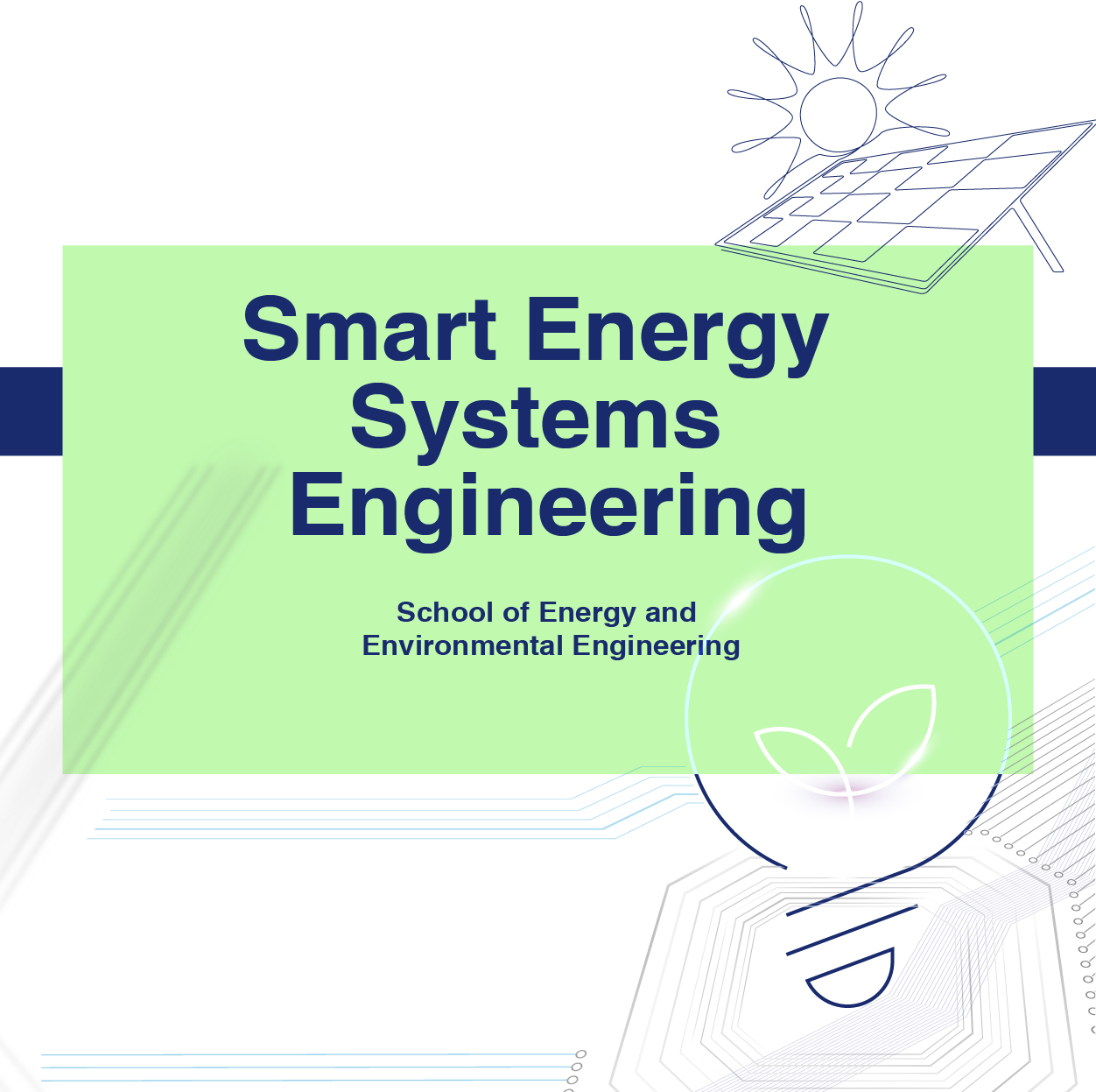
The Smart Energy Systems Engineering
About the Program:
The rapid evolution of energy technology across commercial, industrial, and residential sectors has led to increased investment in modern digital systems. These systems aim to optimize energy use and reduce costs to keep pace with developments and competition. As renewable energy integration and advanced centralized digital systems for measuring and regulating energy usage in facilities continue to advance rapidly, there is a shortage of specialized engineers in smart energy systems in the job market. To address this need and align students with emerging employment trends, the Faculty of Energy and Environmental Engineering has introduced the Smart Energy Systems Engineering program. This program provides students with technical knowledge and training in smart energy systems, integrating applications of smart control systems and data technology into electrical engineering applications, ultimately expanding their career options post-graduation.
Article 32 of the Egyptian Constitution requires the state to utilize renewable energy sources effectively, promote investment in them, and support scientific research in this field. Consequently, the introduction of the new Electricity Law No. 87 of 2015 establishes a legal and regulatory framework that allows private companies to sell their electricity production to consumers and permits third parties to access and use the electricity grid for a fee. This creates new opportunities to develop technically efficient and economically viable systems for utilizing new and renewable energy sources. This emphasizes the pressing need to equip engineers with a comprehensive set of engineering skills that are in demand by the job market, enabling them to design and develop engineering systems for monitoring and controlling energy usage. It also highlights the critical need to graduate specialized engineers in smart energy systems engineering.
The program stands out by providing students with a comprehensive understanding of the design, installation, and development of smart energy systems. This involves gaining insight into the fundamental aspects that support these smart systems, including energy generation, distribution, storage, information systems, data analysis, artificial intelligence, environmental sciences, and sustainable energy systems and regulations.
Our program achieves its goals through the following methods:
- Integration of energy engineering principles with computer engineering, data analysis, and sustainable energy systems and regulations.
- Use of scientific research methods to encourage students to explore new developments in smart energy systems engineering.
- Provision of a work-like environment for students to acquire practical skills during their studies.
- Availability of integrated facilities for practical applications alongside theoretical studies.
- Offer of a credit-hour system as well as the European Credit Transfer and Accumulation System (ECTS), allowing students to choose from a range of courses for specialization while maintaining the possibility of active participation in academic and social activities.
- Implementation of a practical training plan within and outside the university to align with the curriculum and the evolving job market needs.
- Provision of secondary specializations that students can enroll in outside their main area of specialization, which will be mentioned on their graduation certificate.

